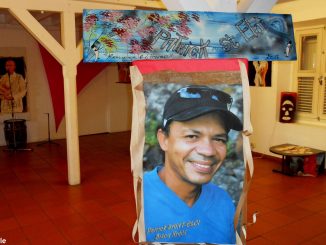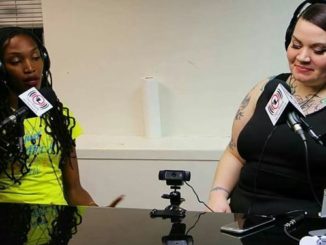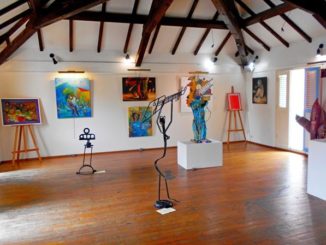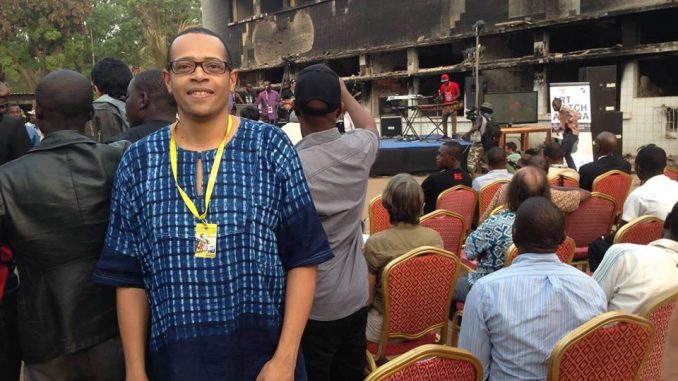
Franck Salin, alias Frankito, is a writer, producer and director. He is the guest of the 23rd edition of the FEMI (Regional and International Film Festival of Guadeloupe), which runs from January 27th to February 4th, 2017, to present his film “Citoyens Bois d’Ébène” in competition in the documentary section. He gave us an interview.
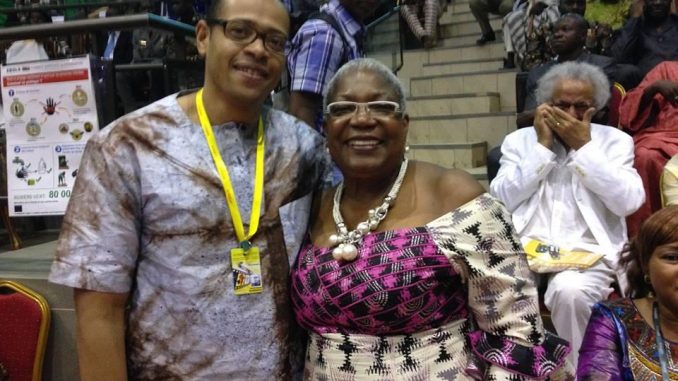
KARICULTURE.NET : Your last documentary film, “Citoyens Bois d’Ébène”, is in the competition at the FEMI 2017. This film is about Emmanuel Gordien’s quest, a Guadeloupean doctor and researcher. You followed him, on three continents, in the footsteps of his African ancestor Georges Bouriqui, the first member of his family who, when slavery was abolished, was called Gordien. Why did you want to make a film about the roots?
Franck Salin : Like many artists, this issue of roots and identity puzzles me. It is essential for all Caribbean people. We are born of the brutal meeting of several worlds. Amerindians and Africans are the ones who paid the highest price. Today, our relations with our ancestors slaves, with our skin color, with Africa, remain complex and even difficult. Emmanuel Gordien’s approach – his extraordinary geneaology work and his trip to Benin – deserved to be shown to the greatest number. I hope it will give some thought. It proves that by reconnecting with your family’s history, by accepting your filiation, it is possible to establish more peaceful relations with ourselves and the Africans.
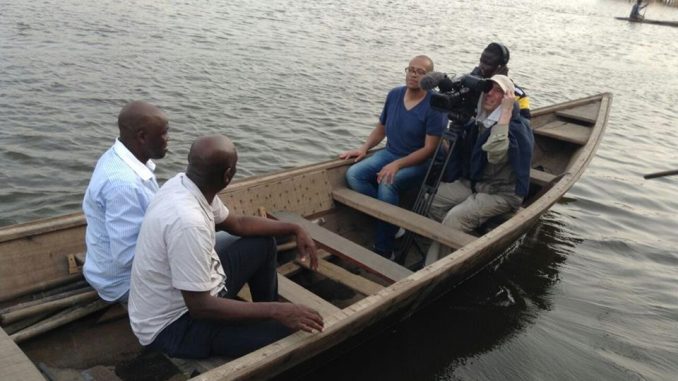
KARICULTURE.NET: From February 28 to March 7, 2015, you took part in the 24th edition of the Pan-African Film and Television Festival of Ouagadougou in Burkina Faso. What kind of welcome did the FESPACO audience give to your feature film “Sur un Air de Revolte” that relates the 44 days of the general strike in Guadeloupe, in early 2009?
F. S. : The Burkinabe audience welcomed “Sur un Air de Révolte” with great interest. I was surprised to see so many spectators at the screenings. The discussions were heated, especially since the Burkinabe had also organized large popular demonstrations in previous years to denounce the high cost of living and then to oust President Blaise Compaoré who clung to the power since the assassination of Thomas Sankara in 1987. The African public is young and curious and it wants to discovers other universes. Every time I was struck during my many trips to Africa, by the warmth of the welcome I received and the desire of those who received me to know my culture, my history. The 25th edition of FESPACO which will take place from February 25 to March 5, 2017, selected “Citoyens Bois d’Ébène” in official competition. I am looking forward to returning to Burkina Faso and discussing with the public on a subject which, I know, will passionate it : the relations that we, descendants of African slaves, have with our past and our continent of origin.
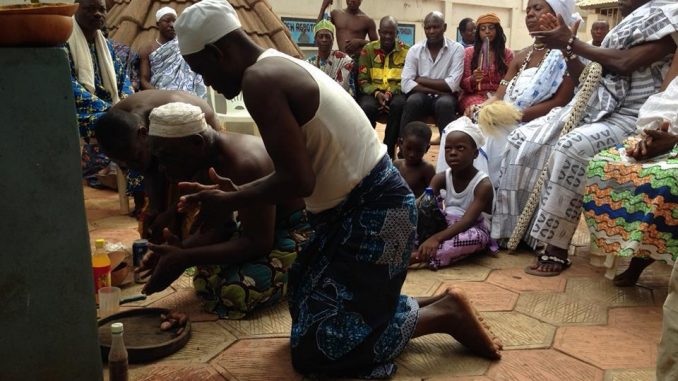
KARICULTURE.NET : In 2009, you made a medium-length film on gwoka entitled “L’Appel du Tambour”. Why did you choose this subject? Do you have a special connection with gwoka (dancer, musician, singer or lover of léwòz)? How do you feel about the inscription of gwoka on the representative list of Intangible Cultural Heritage of Humanity by UNESCO, on November 26, 2014?
F. S. : I realized “L’Appel du Tambour” because I am a gwoka enthusiast. When I was a child, my father used to take me to léwòz evenings. I was fascinated by the beauty and depth of this art as well as by those who practiced it. I was struck by singers like Guy Konkèt and Christian Aigle, by “tanbouyé “ (drummers) like Carnot and Jocelyn Gabali, by Gérard Lockel’s modern gwoka. As an adult, I discovered, in the Paris region, a gwoka community extraordinarily vivid. Thousands of gwoka fans come to the léwòz every weekend, organize “koudtanbou”, classes for young people, concerts… I wanted to share this universe that no film had shown before. Gwoka’s inscription on the list of the Intangible Cultural Heritage of Humanity by UNESCO can help to promote it and to enable researchers and professionals to find more easily funding to carry out their activities. However, gwoka, like any art, will live only if its transmission is correctly assured and its actors remain creative. Otherwise, it will fossilize. Conservation is important, but creation is just as important. Fortunately, gwoka is not currently an endangered music…
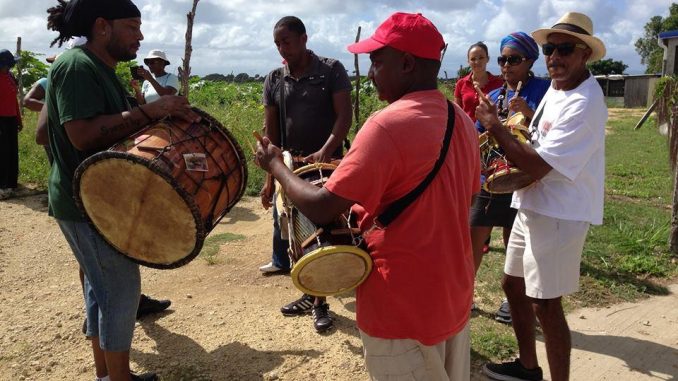
KARICULTURE.NET : You are not only a director, you are also a writer. Fifteen years ago, you published, under the pseudonym Frankito, your first novel entitled “Pointe-à-Pitre – Paris” by L’Harmattan. At the time, did you want to make a career as a writer or simply to tell the life of young Guadeloupeans who evolve in a frenetic consumer society, who have to deal with Creole and French culture, to immigrate and to confront racism in France and other problems?
F. S. : When I was a student, as most young people my age, I was wondering about the future. I was also captivated by my new life in Paris. I started writing frantically on notebooks, all the sensations that came to me as well as the thoughts that crossed my mind. I have no ambition to write a novel. One day, I re-read all these notes I had taken, and I realized that most of them hinge on the notion of Ideal. What ideal could a young Guadeloupean nourrish at the dawn of the 21st century? To study to be able to build a big villa with swimming pool by the sea in the country? To serve a major institution of the State or a multinational company somewhere in the West? To join a struggle for national independence which emulates less and less? I wrote “Pointe-à-Pitre – Paris” when I was stuck in a questioning about my personal life and our common destiny we, these French citizens who are not like the others…
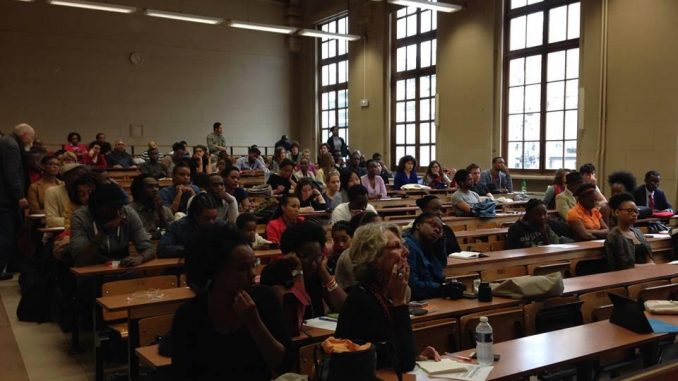
KARICULTURE.NET: In 2012, you published a novel which is similar to a thriller “L’Homme pas Dieu” by Editions Écriture. You set the scene again in present-day Guadeloupe. Why? Do you think that our contemporary society represents a great source of inspiration and to interest the readers, it is not necessary (as do many West Indian writers) to tell stories based on the slavery period or post-slavery period?
F. S. : Inspiration is everywhere. In the people I meet, in the places I visit, in the news I hear, in the newspapers and books I read, in the air I breathe… Being native of Guadeloupe, my island, its history, its people, its news, are an important source of inspiration. I did not write novels set during the period of slavery or during the century following the abolition. But others dit it, and it is probable that one day I will try too. I write about the present time because I find it very interesting. There are so many things to say, so many stories to tell, so many discussions to have, so many reflections on what is going on today…
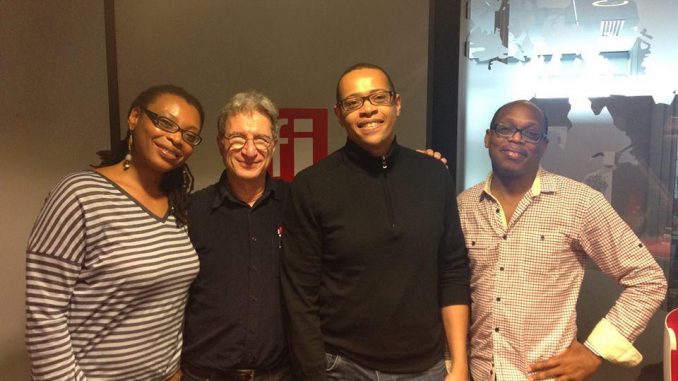
KARICULTURE.NET : Your play “Bòdlanmou pa Lwen” was the first work in the Creole language to be presented at the Comédie Française in Paris in 2007. What do you remember most about your stay in this prestigious institution? Was it a way for you to militate in favor of Creole?
F. S. : I was very happy and proud to hear the Creole language resounding in this great institution. Many languages had already been heard, but not ours. It was an honor for me, as a writer and as a creolophone. I must admit that this moment was quite troubling. I thought of the defiance which Creole had undergone, combated by the school of the Republic and often by ourselves, considered for a long time as a vulgar patois, I thought of the efforts made by all those who had come before me so that it is recognized and learnt. The idea to present my text to the Comédie française belonged to the association Etc Caraïbes. It had organized a theatrical writing competition which had rewarded it and then it had organized a reading cycle that had taken it to several theatres including the prestigious French theatre.
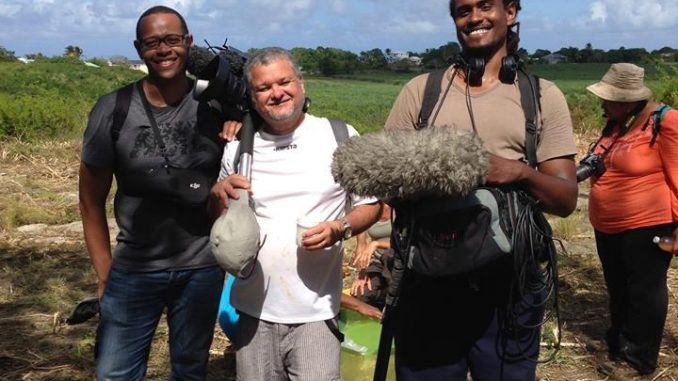
KARICULTURE.NET: You are a man of many talents, can we know your projects?
F. S. : My next novel “Le Grand Frisson” is published in March. It will be published like the previous one by Éditions Écriture. I am actively preparing the staging of “Bòdlanmou pa Lwen”. The performances will take place in Paris in April and in Martinique in June. Unfortunately, I have not yet signed dates in Guadeloupe, but it will happen!

